Resources
Our Experts highly recommend critically acclaimed resources from across the internet and around the globe. Their perspectives stress science, reason, and intellectual advancement in areas that touch on secularism in society.
Papers
A Cross-National Test of the Uncertainty Hypothesis of Religious Belief
Barber, N. (2011). Cross-Cultural Research 45: 318–333 “According to the uncertainty hypothesis, religion helps people cope psychologically with dangerous or unpredictable situations… The author predicts that religious belief would decline in economically...
Read moreThe Chronic Dependence of Popular Religiosity upon Dysfunctional Psychosociological Conditions
Paul, G. (2009). Evolutionary Psychology, 7(3): 398-441 “Better understanding the nature, origin and popularity of varying levels of popular religion versus secularism, and their impact upon socioeconomic conditions and vice versa, requires a...
Read morePreachers Who are not Believers
LaScolla, L. & Dennett, D. (2010). Evolutionary Psychology 8: 122-150 “There are systemic features of contemporary Christianity that create an almost invisible class of non-believing clergy, ensnared in their ministries by a web...
Read moreAtheists as “Other”: Moral Boundaries and Cultural Membership in American Society
Edgell, P., Gertels, J., & Hartmann, D. (2006). American Sociological Review 71, 211–234 “…atheists are less likely to be accepted, publicly and privately, than any others from a long list of...
Read moreDo You Believe in Atheists? Distrust is Central to Anti-Atheist Prejudice
Gervais, W., Shariff, A., & Norenzayan, A. (2011). Journal of Personality and Social Psychology 101: 1189-1206. “…A broad sample of American adults revealed that distrust characterized anti-atheist prejudice but not anti-gay prejudice. In...
Read moreMental Well-Being in the Religious and Nonreligious: Evidence for a Curvilinear Relationship
Galen, L., & Kloet, J. (2011). Mental Health, Religion and Culture 14: 673–689. “…The present study examined mental well-being, utilising the full range of certainty of belief or non-belief in God...
Read moreThe Reversal of Fortunes: Trends in County Mortality and Cross-Country Mortality Disparities in the United States
Ezzati, M., Friedman , A. B., Kulkarni, S. C., & Murray, C. J. L. (2008). PLoS Medicine 5: e66. “…This study aimed to investigate trends in county mortality and cross-county mortality disparities...
Read moreWomen, Work, and the Economy
Elborgh-Woytek, K. et al. (2013). IMF Staff Discussion Note “This Staff Discussion Note examines the specific macro-critical features of women’s participation in the labor market, the constraints preventing women from developing their...
Read moreReligious Affiliation, Education and Internet Use
Downey, A. (2014). Cornell University. “Using data from the General Social Survey, we measure the effect of education and Internet use on religious affiliation. We find that Internet use is associated...
Read moreOn the Receiving End: Discrimination Toward the Non-Religious in the United States
Cragun, R. et al. (2012). Journal of Contemporary Religion 27: 105-127. “The present study examines perceived discrimination faced by religious ‘nones’. After distinguishing between atheists, agnostics, and ‘nones’ who are deists or theists...
Read moreWhen God Sanctions Killing: Effect of Scriptural Violence on Aggression
Bushman, B., Ridge, R., Das, E., Key, C., & Busath, G. (2007). Psychological Science 18: 204–207 “Violent people often claim that God sanctions their actions. In two studies, participants read a violent passage...
Read moreTheodicy’s Problem: A Statistical Look at the Holocaust of the Children and the Implications of Natural Evil for the Free Will and Best of all Possible Worlds Hypotheses
Paul, G. (2009). Philosophy and Theology, 19: 125–149 “The primary purpose for his analysis is to inform those interested in the theodicy problem about the demographic statistics that detail the full...
Read moreScience, Religion, and Society: the Problem of Evolution in America
Coyne, J. (2012). Evolution 66-8, 2654-2663 “American resistance to accepting evolution is uniquely high among First World countries. This is due largely to the extreme religiosity of the United States, which is...
Read moreIs Personal Insecurity a Cause of Cross-National Differences in the Intensity of Religious Belief?
Rees, T. (2009). Journal of Religion and Society, 11 “Previous research has shown an apparent relationship between “societal health” and religiosity, with nations that exhibit higher mean personal religiosity also tending to provide worse...
Read moreCannibals and Crusaders
Rubenstein, J. (2008). French Historical Studies 31: 525-552 “During the First Crusade (1095–99) the Franks cannibalized the Muslim dead at the city of Ma`arra. More than a dozen narrative sources describe this...
Read moreAtheism, Secularity, and Well-Being: How the Findings of Social Science Counter Negative Stereotypes and Assumptions
Zuckerman, P. (2009). Sociology Compass 3: 949–971 “What do we currently know about atheists and secular people? In what ways are atheism and secularity correlated with positive societal outcomes? This article offers...
Read morePerceptions of Science and American Secularism
Baker, J. (2012). East Tennessee State University ...This study analyzes data from a random, national survey of adults to examine the empirical connections between perceptions of science and secular identities in the...
Read moreSecularism or Catholicism? The Religious Composition of the United States to 2043
Skirbekk, V., Goujon, A., and Kaufmann, E. (2008). Vienna Institute of Demography We project the religious composition of the United States to 2043, considering fertility differences, migration, intergenerational religious transmission and...
Read moreSecularism, Equality, and Political Legitimacy
Mahoney, J. (2010). Journal of Value Inquiry, March 2010 In recent years, most discussion on the topic of secularism and political legitimacy has centered on the United States. Some relevant examples that have...
Read moreChild Fatalities From Religion-motivated Medical Neglect
Asser, S. and Swan, R. (1998). Pediatrics v101-4, 625-629 Results. One hundred forty fatalities were from conditions for which survival rates with medical care would have exceeded 90%. Eighteen more had expected...
Read morePoliticking From The Pulpit: An Analysis Of The IRS’s Current Section 501(c)(3) Enforcement Efforts And How It Is Costing America
Bruch, Stephanie A (2009). 53 St. Louis L.J. 1253 Religious statements made by political candidates may seem inappropriate, especially to those individuals who believe religion and politics should never overlap. However...
Read moreMichael Behe and the “Limits” of Evolution
From Secular Global Institute Communicator Jim Downard, here is a paper breaking down Michael Behe's appearance at the 2005 Dover Intelligent Design trial and how he tried to lay out the limits of evolution...
Read moreTaking "Teach the Controversy" Critical Analysis Seriously
Here is a paper from Secular Global Institute Communicator Jim Downard entitled, "Taking “Teach the Controversy” Critical Analysis seriously: What does Intelligent Design have to say about the Reptile-Mammal Transition?" An investigation (with illustrations)...
Read moreThree Macroevolutionary Episodes
In his paper "Three Macroevolutionary Episodes: Deep Time and the Creation/Evolution Controversy," Secular Global Institute Communicator Jim Downard discusses fossil records, including illustrations and several chronology charts. It also contains a critique of Jonathan...
Read moreNOMA Revisited
In this paper (full text available below), Secular Global Institute Communicator Jim Downard tackles non-overlapping magisteria, or NOMA. His summary follows: Make no mistake about it, this non-overlapping magisteria (NOMA) issue is one...
Read moreBirth Cohort Changes in the Association Between College Education and Religious Non-Affiliation
This article, published in the Social Forces journal, examines the changing association between higher education and reporting no religious affiliation in the United States. Using more than three and a half decades...
Read moreArticles
Why Religion May Not be Hard-Wired
Begley, S. (2009). Newsweek 3/13/2010 "At last check, intimations of mortality had not been banished from the human mind—the Grim Reaper still stalks our thoughts. Nor have our brain circuits shaken...
Read moreThe Intelligent Design Controversy
Below is the full transcript of a class lecture given by Secular Global Institute Communicator Jim Downard. In his own words: I first met Pete Boghossian when he was called in at the...
Read moreA Global Secular Bill of Rights
After seeing the US State Department's recent report on International Religious Freedom, Secular Global Institute Communicator Jim Downard created a Global Secular Bill of Rights as a call to arms and details on the scale...
Read moreAn Ill Wind in Tortuca
Below is the full text of Secular Global Institute Communicator Jim Downard's's 2009 Kennewick Freethought Society lecture on how people come to believe things that aren't true. Downard summarizes: "The take home point...
Read moreEvolution
Downard, James, Secular Global Institute Communicator 7/31/2014 The scientific concept that all life on earth is related by common descent, and has come to be the way it is through natural processes...
Read moreOh Lord, can't we keep religion out of politics?
By Teresa Wiltz, (2013). The Guardian America's founders insisted on church-state separation. Yet now we have senators and justices prattling about the devil. Save us. read more
Read moreUnelectable Atheists: U.S. States that Prohibit Godless Americans from Holding Public Office
by Matthew Bulger, (2013). Humanist Network News With election season upon us, and a near constant stream of public jabs and rebuttals between incumbents and their challengers, we should focus on...
Read moreA Secular Boom in America and Jews of “No Religion”
Pini Herman. (2011). Jewish Journal, 10/31/2011 “The US Jewish population is comprised of over a third of ‘Jews, No Religion,’ a strange term that may describe a lot of our friends...
Read moreScience, Religion Debated as Evangelical Takes Top NIH Post
Vergano, D. (2009). USA Today 9/14/2009 “Can we all get along? Maybe not when it comes to science and religion. Just ask scientist Francis Collins, installed last month as head of the National Institutes of...
Read moreFading Faith: The Rise of the Secular Age
James A. Haught. (2011). Patheos. “Since World War II, worship has dwindled starkly in Europe, Canada, Australia, Japan and other advanced democracies… But quietly, under the radar, much of America slowly...
Read moreScience is Not the Enemy
Pinker, S. (2013). The New Republic 8/6/2013 “The great thinkers of the Age of Reason and the Enlightenment were scientists. Not only did many of them contribute to mathematics, physics, and...
Read moreWhat’s really hurting Christianity in America
Paul, G. (2010). Los Angeles Times, 10/27/2010 “In their new book, ‘American Grace,’ Robert D. Putman and David E. Campbell make two assertions about the decline of religious affiliation in the United...
Read moreHome-Schooling Demographics Change, Expand
Alesha Williams Boyd and Sergio Bichao, (2011). USA Today, 2/15/2012 “…The New Jersey co-op is among hundreds of secular and inclusive home-schooling groups in the USA aimed at providing opportunities for...
Read moreChristian Apologist Josh McDowell: 3 Cultural Changes That Create the “Perfect Storm” Against the Church
Martinez, J. (2013). Christian Post “Josh McDowell, an apologist and evangelist, spoke at Southern Evangelical Seminary’s Christian Apologetics conference on three culture changes that create a “perfect storm” that challenges and poses...
Read moreWhere are the people?
Hinch, J. (2014). The American Scholar, winter; 18-29 “Just 10 years ago, evangelical Christianity appeared to be America’s dominant religious movement. Evangelicals, more theologically diverse and open to the secular world...
Read moreSome Mormons Search the Web and Find Doubt
Goodstein, L. (2013). The New York Times; 7/21/2013 “In the small but cohesive Mormon community where he grew up, Hans Mattsson was a solid believer and a pillar of the church...
Read moreThe Price of Purity
Feldman, K. (2014). The New Republic, 2/7/2014 “The security guards were bored. It was the first weekend of May 2010—a time when students at other universities were partying before finals. This...
Read moreA False Equation: Faith Equals Morality
Dyer, G. (2011). The Spectator 12/20/2011 “In the United States, where it is almost impossible to get elected unless you profess a strong religious faith, it would have passed completely unnoticed...
Read moreWhy Belief in God is Not Innate
Paul, G. (2010). The Wall Street Journal, 4/10/2010 “It has become fashionable to assert that, far from being dead, belief in God is so deeply ingrained in the human psyche that...
Read moreWhat’s really hurting Christianity in America
Paul, G. (2010). Los Angeles Times, 10/27/2010 “…Americans, especially the youngest generations, are rapidly losing a lot of their faith. The nonreligious are far and away the fastest-growing group, with nonbelievers...
Read moreWhy Atheists Align with Democrats
Brown, A. (2012). Atheism Resource “…I will look at the political views of active atheists and non-religious people in America and show that there is a preponderance to be towards the...
Read moreDoes Religion Make You Nice? Does Atheism Make You Mean?
Bloom, P. (2008). Slate 11/7/2008 "Many Americans doubt the morality of atheists. According to a 2007 Gallup poll, a majority of Americans say that they would not vote for an otherwise qualified...
Read moreWhy Religion May Not be Hard-Wired
Begley, S. (2009). Newsweek 3/13/2010 "At last check, intimations of mortality had not been banished from the human mind—the Grim Reaper still stalks our thoughts. Nor have our brain circuits shaken...
Read moreWhy Do Americans Still Dislike Atheists?
Paul, G. and Zuckerman, P. (2011). Washington Post, 4/29/2011 Long after blacks and Jews have made great strides, and even as homosexuals gain respect, acceptance and new rights, there is still a...
Read moreCountries with Less Religious Diversity Have More Faith-Based Violence
Green, E. (2014). The Atlantic, 4/4/2014 “Chalk up a win today for pluralism. On Friday, the Pew Research Center released a report on the countries with the most and least religious diversity, and the...
Read moreAtheism and the Decline of Religion in the U.S.
There is some evidence that certain indicators of religiosity appear to be going through a slight decline in the United States. That is the good news. The bad news is that the...
Read moreProspect Magazine's World Thinkers 2013
After more than 10,000 votes from over 100 countries, the results of Prospect’s world thinkers 2013 poll came in. Online polls often generate curious results, but this top 10 offers...
Read moreSurveys
In U.S., 42% Believe Creationist View of…
by Gallup, June 2014 ( read survey ) More than four in 10 Americans continue to believe that God created humans in their present form 10,000 years ago, a view that has...
Read moreHalf of American Fans See Supernatural F…
by Public Religion Research Institute, January 2014 ( read article ) Just ahead of the 2014 Super Bowl, half of sports fans see some aspect of the supernatural at play in sports...
Read more“I Know What You Did Last Sunday” Finds …
by the Public Religion Research Institute, May 2014 ( read article ) A new PRRI study, “I Know What You Did Last Sunday: Measuring Social Desirability Bias in Self-Reported Religious Behavior, Belief...
Read moreAmong Wealthy Nations, U.S. Stands Alone…
Pew Research Center, (2002) ( see report ) "Religion is much more important to Americans than to people living in other wealthy nations. Six-in-ten (59%) people in the U.S. say religion...
Read moreWorldwide, Many See Belief in God as Ess…
Pew Research Center, March 2014. ( see report ) Many people around the world think it is necessary to believe in God to be a moral person, according to surveys in...
Read moreFor 2016 Hopefuls, Washington Experience…
Pew Research Center, May 2014 ( see report ) As the 2016 presidential campaign begins to take shape... While 70% of Republicans say they would be less likely to support a candidate...
Read moreIrreligion in the United States
Wikipedia, 2014. (see report) “Encompassing at least agnosticism, atheism, secular humanism, and general secularism,nonreligious Americans have been counted in the tens of millions by various polls. Many Americans, especially in the American West, have historically rejected both organized religion and nonreligion...
Read moreDemographics of Atheism
Wikipedia, 2014. (see report) “Atheists comprised an estimated 2.01%, and non-religious a further 9.66% of the world population, according to The World Factbook in 2010. In East Asia, atheists and the irreligious are the majority. Outside of East Asia and...
Read moreSocial Progressive Index
Social Progressive Imperative, 2014. (see report) “To truly advance social progress, we must learn to measure it, comprehensively and rigorously. The Social Progress Index offers a rich framework for measuring the...
Read moreNorth Dakota No. 1 in Well-Being, West V…
Gallup, 2014. (See report) “North Dakota residents had the highest well-being in the nation in 2013, according to the Gallup-Healthways Well-Being Index. South Dakota trailed its northern neighbor in second place...
Read moreMississippi Most Religious State, Vermon…
Gallup, 2014. (see report) “Religiousness across the U.S. in 2013 remained similar to previous years. With 61% of its residents classified as very religious, Mississippi held on to its position as...
Read moreWho is a Secular American? (Probably not…
American Secular Census, 2014. (see report) “A majority (two-thirds) of Pew’s ‘Nones’ are essentially unchurched believers: people of faith who lack connections to organized religion… Put more bluntly: the ‘Nones’ are not a cohort...
Read moreMore Americans Have No Religious Prefere…
General Social Survey, 2013. (see report) “…Twenty percent of American adults said in 2012 that they had no religious preference… The percentage answering ‘no religion’ was 18 percent two years earlier...
Read moreAmerican Values Survey
Public Religion Research Institute, 2013. (see report) “Despite conventional wisdom linking the Tea Party movement with the libertarian arm of the Republican Party, a majority of libertarians (61 percent) say they...
Read moreStudy “I Know What You Did Last Sunday” …
Public Religion Research Institute, 2014. (see report) “The research shows that every subgroup of Americans inflates their levels of religious participation… On the telephone survey, 36 percent of Americans report attending religious...
Read morePublic’s Views on Human Evolution
Pew Research Center, 2013. (see report) “…six-in-ten Americans (60%) say that ‘humans and other living things have evolved over time,’ while a third (33%) reject the idea of evolution, saying that ‘humans...
Read moreNones on the Rise
Pew Research Center, 2012. (see report) “…One-fifth of the U.S. public – and a third of adults under 30 – are religiously unaffiliated today, the highest percentages ever in Pew Research Center...
Read moreGlobal Religious Diversity
Pew Research Center, 2014. (see report) “Several years ago, the Pew Research Center produced estimates of the religious makeup of more than 200 countries and territories… As part of the next phase of...
Read moreReligious Hostilities Reach Six-Year Hig…
Pew Research Center, 2014. (see report) “The share of countries with a high or very high level of social hostilities involving religion reached a six-year peak in 2012, according to a new study by...
Read moreMillennials in Adulthood
Pew Research Center, 2014. (see report) “…half of Millennials (50%) now describe themselves as political independents and about three-in-ten (29%) say they are not affiliated with any religion. These are at or...
Read moreU.S. Catholics View Pope Francis as a Ch…
Pew Research Center, 2014. (see report) “One year into his pontificate, Pope Francis remains immensely popular among American Catholics and is widely seen as a force for positive change within the...
Read moreSupreme Being, The Afterlife and Evoluti…
Ipsos, 2011. (see report) “…one half (51%) of global citizens definitely believe in a ‘divine entity’ compared to 18% who don’t and 17% who just aren’t sure. Similarly, half (51%) believe...
Read moreGlobal Index of Religion and Atheism
WIN-Gallup International, 2012. (see report) “…atheists are a small minority in the early years of 21st century. Only 13% say they are atheists. They are mostly concentrated in East Asia where 47% of...
Read moreAmericans’ Belief in God, Miracles and H…
Harris: A Nielson Company, 2013. (see report) “…a strong majority (74%) of U.S. adults do believe in God, this belief is in decline when compared to previous years as just over...
Read more
 Video: World's Oldest Freethought Publication
Video: World's Oldest Freethought Publication Video: Theism is Not Rational by Aron Ra.
Video: Theism is Not Rational by Aron Ra.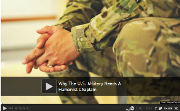
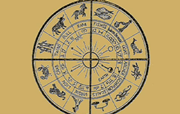
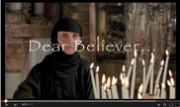
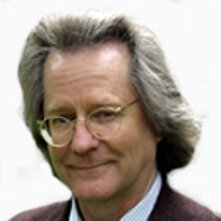 Video: A C Grayling Discusses Humanism
Video: A C Grayling Discusses Humanism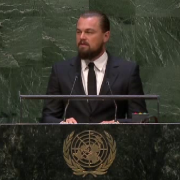 Video: Leonardo DiCaprio
Video: Leonardo DiCaprio 30 Of The Most Violent Exhortations From The Bible, Torah, And Quran
30 Of The Most Violent Exhortations From The Bible, Torah, And Quran Resources
Resources